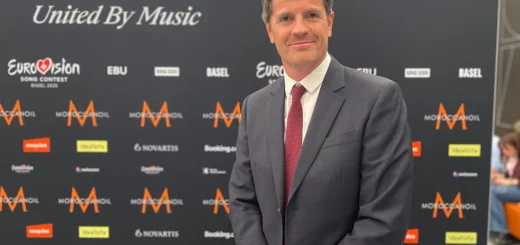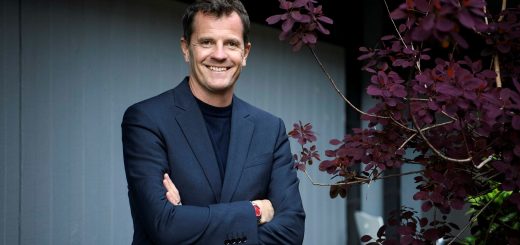Martin Österdahl Announces Departure as Executive Supervisor of the Eurovision Song Contest: The End of an Era

After five years at the helm of one of the world’s most iconic music events, Martin Österdahl has announced he will be stepping down as Executive Supervisor of the Eurovision Song Contest (ESC) and Junior Eurovision Song Contest(JESC). For those who have been living under a rock (or perhaps just haven’t watched the latest edition), Österdahl has overseen some of the most defining moments in the festival’s history, including the unforgettable Eurovision 2021 in Rotterdam during a global pandemic, and the 2023 contest in Liverpool, hosted on behalf of Ukraine’s Susplilne.
Appointed in 2020, Martin Österdahl has truly steered the Eurovision ship through some challenging waters, and his leadership has left an indelible mark on the contest. But with the 70th anniversary of Eurovision fast approaching, is it time for a change, or is this just the natural evolution of an ever-growing spectacle?
A Legacy of Innovation and Resilience: Eurovision Under Österdahl’s Leadership
Let’s face it, Österdahl wasn’t just in charge of the Eurovision Song Contest; he was the mastermind behind Eurovision 2021—the first live event after COVID restrictions hit. Hosting the festival in Rotterdam during a pandemic was no small feat, and if that wasn’t enough, Liverpool 2023 was yet another innovative chapter, where the UK stepped in to host on behalf of Ukraine. What’s next, Eurovision on the moon?
Under his leadership, Österdahl’s Eurovision became more than just a show; it became a global phenomenon, transforming itself through digital engagement, inclusive programming, and modernisation. The result? A festival that connects with millions of fans and youth audiences across Europe and beyond. So, when he says he’s proud of his changes, we have to take his word for it – he has indeed expanded the event’s appeal. From new sponsors to record-breaking ticket sales, Österdahl’s era has seen Eurovision flourish like never before.
But let’s not forget the person he was before his reign as Executive Supervisor. A seasoned Eurovision veteran, Österdahl was also the Executive Producer of Eurovision in 2013 and 2016 and served as a key member of the ESC Reference Group for seven years. Clearly, he knew what he was getting into, and boy, did he make it look easy.
The Future of Eurovision: The End of an Era?
With Martin Green stepping in as interim Executive Supervisor, the question on everyone’s lips is: What does the future hold for Eurovision? After all, it’s not every day that we see a giant like Österdahl exit. Is Eurovision destined to continue to grow, or will it stagnate without his visionary leadership?
Österdahl himself is staying humble, stating, “It has been the honour of my professional life to steer the world’s largest music event.” Quite the understatement, as his legacy will continue to echo in the dazzling performances, the engaging digital presence, and the festival’s ever-expanding reach.
Looking back on his tenure, Österdahl acknowledges that the contest has grown to become “an event watched by hundreds of millions, connecting with youth audiences worldwide.” It’s safe to say he has taken the Eurovision brand and turned it into a globally recognised platform, where an unknown artist can go from zero to hero in the blink of an eye.
What’s Next for Eurovision?
As we approach Eurovision’s 70th anniversary, Martin Österdahl’s departure marks the end of a key chapter. But we all know this is Eurovision – it never stays the same for long. So, while we say goodbye to Österdahl, let’s get ready for the next phase in the contest’s already glittering future.
One thing’s for sure: Eurovision’s future looks brighter than ever. Whether it’s through innovative formats, global partnerships, or bringing in fresh perspectives, we’ll be tuning in for another showstopper in 2024. Just make sure the next Executive Supervisor is ready to take the Eurovision ship even further!
Source: Eurovision

